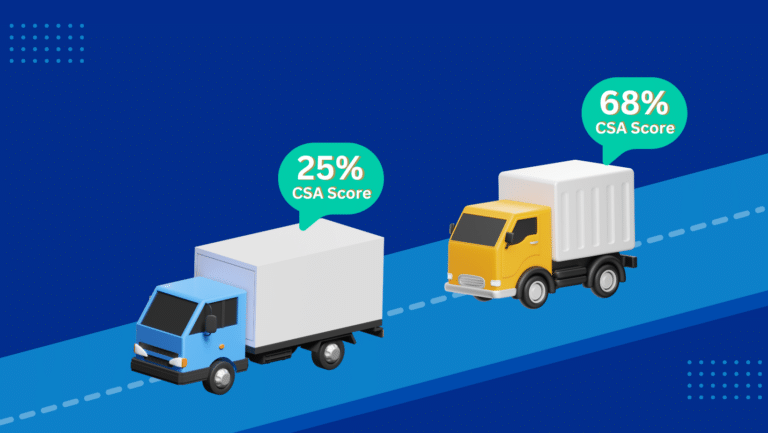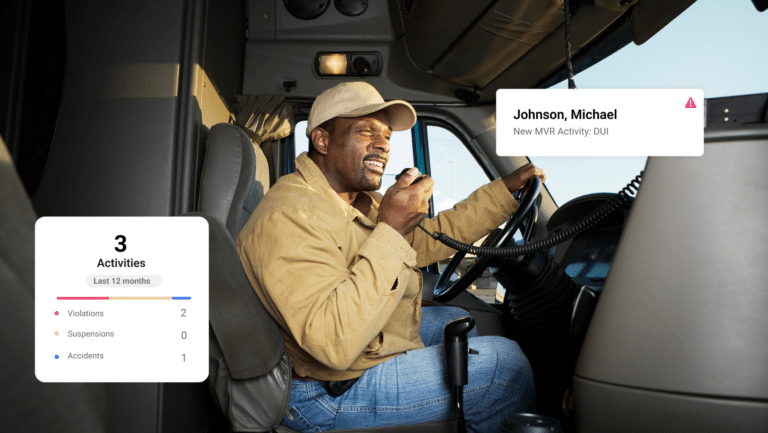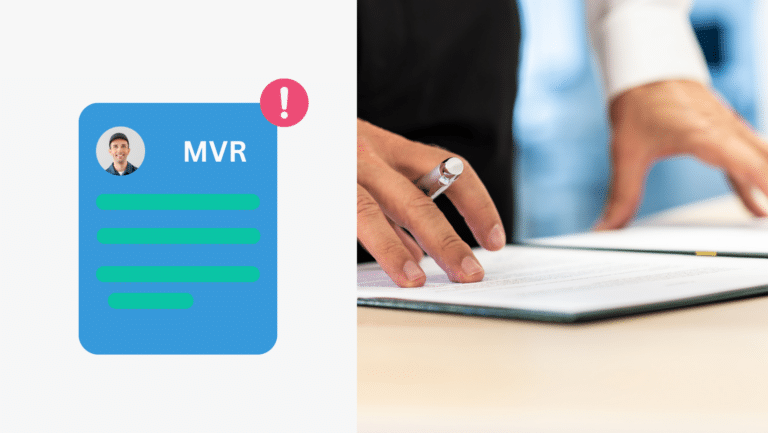FMCSA MVR requirements: 3 Tips to Minimize Risk

Motor carriers and companies who employ drivers with a Commercial Drivers License (CDL) must comply with basic FMCSA MVR requirements, like the annual MVR and Clearinghouse. These guidelines were created with hopes of improving public safety. However, they do very little to protect your companies’ bottom line and litigation risk.
Here are 3 tips to boost your DOT compliance and minimize your chance of employing risky drivers.
1. Embrace DOT Driver MVR Monitoring
The required annual MVR is important and not going away. However, imagine receiving automatic updates when a driver’s status changes, and/ or when a new conviction is posted to a driver’s record. With these insights you can take action fast. DOT driver monitoring technology is constantly screening driving records for negative changes. This lets you filter your employees’ by license status in real-time.
2. Maintain and Digitize Your DQ Files
Another basic FMCSA MVR requirement is the Driver Qualification (DQ) checklist. Instead of keeping your drivers’ DQ files in a file cabinet somewhere, keep them in a secure portal that can be easily and securely accessed. Our DOT driver MVR monitoring platform includes an information management tool that lets you store and manage all employee documents. With an easy to use Driver record management system, you’ll not only save time, but also enjoy more peace of mind.
3. Keep up with CDL Medical Certificates
It can be overwhelming to manually track whose medical certificates are coming up on expiration. With enough on your plate to worry about, seek a service that can automate the process and help you ensure no one falls through the cracks again. With Embark Safety’s technology, you can receive notifications at 30, 60 and 90 days in advance of expiration.
Key FMCSA MVR Requirements Takeaway
In summary, it’s not wise to settle for the minimum standard with anything but especially driver safety. Innovative options exist that can amplify DOT compliance and minimize liability for your company.
Want to learn more about how to incorporate these three tips— easily and affordably?
*We are not lawyers. Consult with your legal counsel to ensure your processes and procedures meet/ or exceed safety standards and compliance regulations. Please read our legal disclaimer.






